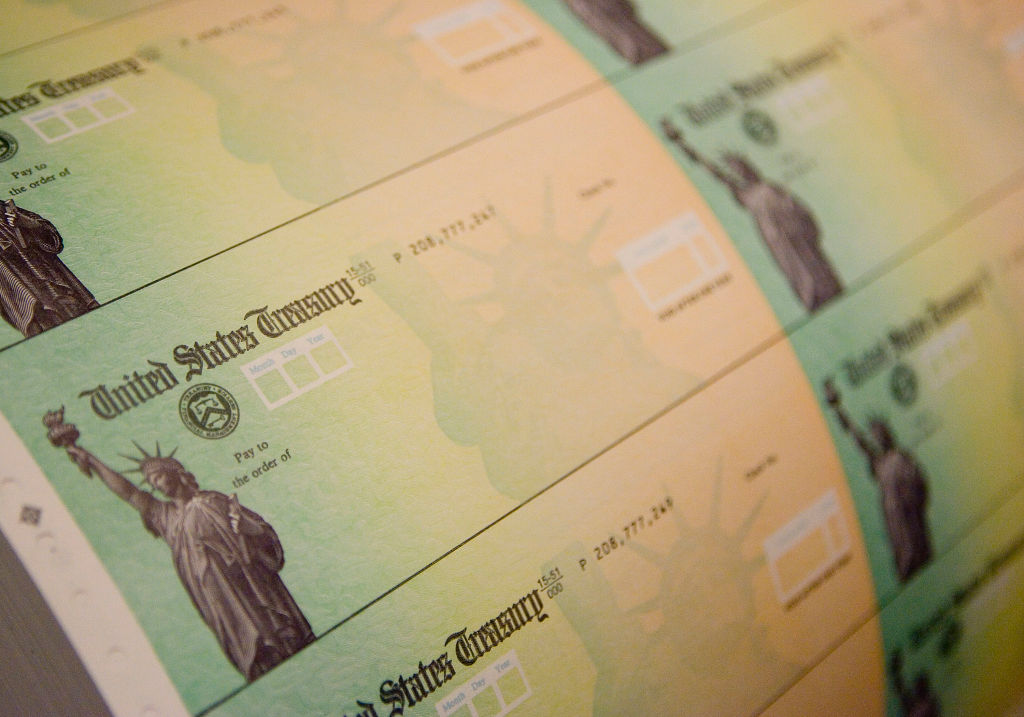Austrian banks report that confused customers are receiving U.S. stimulus checks


A free daily email with the biggest news stories of the day – and the best features from TheWeek.com
You are now subscribed
Your newsletter sign-up was successful
When Manfred Barnreiter, a 73-year-old man in Austria, received a $1,200 check from the U.S. government, he was certain it was a scam.
Barnreiter and his wife, who was also sent a check, went to their bank and asked some questions. A few days later, Barnreiter told the Austrian broadcaster ORF, the checks cleared. The Barnreiters are not eligible for the $1,200 coronavirus stimulus payments — they are not U.S. residents and do not have U.S. citizenship. Barnreiter said he did briefly work in the U.S. in the 1960s and receives a small pension from that job, but that's his only connection to the country.
The Washington Post reports that Barnreiter and his wife are among the hundreds of Austrians who are known to have received stimulus checks from the United States. One bank, Sparkasse, told the Post that several customers who recently worked as au pairs in the United States have come in and cashed stimulus checks. A spokeswoman for another financial institute, Oberbank, told the Post, "People initially thought it's a treacherous form of fraud — but the checks were real."
The Week
Escape your echo chamber. Get the facts behind the news, plus analysis from multiple perspectives.

Sign up for The Week's Free Newsletters
From our morning news briefing to a weekly Good News Newsletter, get the best of The Week delivered directly to your inbox.
From our morning news briefing to a weekly Good News Newsletter, get the best of The Week delivered directly to your inbox.
Government officials told NPR last month that some foreigners are receiving stimulus checks despite not being eligible, and blamed the erroneous payments on the people improperly filing tax returns. Barnreiter told ORF when he cashed his check, he felt "bad," and thought, "Those poor Americans, maybe they need the money more urgently than we do here in Europe." But, he decided that the amount is "peanuts," and plans on spending his $1,200 in the United States when he's able to visit again.
A free daily email with the biggest news stories of the day – and the best features from TheWeek.com
Catherine Garcia has worked as a senior writer at The Week since 2014. Her writing and reporting have appeared in Entertainment Weekly, The New York Times, Wirecutter, NBC News and "The Book of Jezebel," among others. She's a graduate of the University of Redlands and the Columbia University Graduate School of Journalism.
-
 TikTok secures deal to remain in US
TikTok secures deal to remain in USSpeed Read ByteDance will form a US version of the popular video-sharing platform
-
 Unemployment rate ticks up amid fall job losses
Unemployment rate ticks up amid fall job lossesSpeed Read Data released by the Commerce Department indicates ‘one of the weakest American labor markets in years’
-
 US mints final penny after 232-year run
US mints final penny after 232-year runSpeed Read Production of the one-cent coin has ended
-
 Warner Bros. explores sale amid Paramount bids
Warner Bros. explores sale amid Paramount bidsSpeed Read The media giant, home to HBO and DC Studios, has received interest from multiple buying parties
-
 Gold tops $4K per ounce, signaling financial unease
Gold tops $4K per ounce, signaling financial uneaseSpeed Read Investors are worried about President Donald Trump’s trade war
-
 Electronic Arts to go private in record $55B deal
Electronic Arts to go private in record $55B dealspeed read The video game giant is behind ‘The Sims’ and ‘Madden NFL’
-
 New York court tosses Trump's $500M fraud fine
New York court tosses Trump's $500M fraud fineSpeed Read A divided appeals court threw out a hefty penalty against President Trump for fraudulently inflating his wealth
-
 Trump said to seek government stake in Intel
Trump said to seek government stake in IntelSpeed Read The president and Intel CEO Lip-Bu Tan reportedly discussed the proposal at a recent meeting



